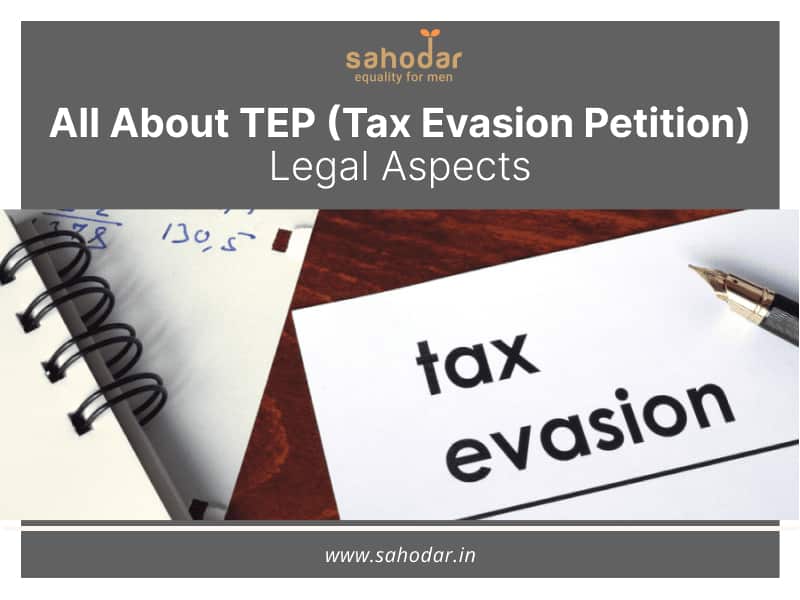Tax evasion is a serious offense that undermines the financial stability of a country by depriving it of crucial revenue. Governments around the world have established various mechanisms to combat tax evasion and enforce tax compliance. One such mechanism is the Tax Evasion Petition (TEP), a tool that allows individuals or entities to report suspected tax evasion to the authorities. This article explores the concept of TEP, its significance, the legal framework, the process involved, and its impact on tax compliance and enforcement.
What is Tax Evasion Petition (TEP)
A Tax Evasion Petition (TEP) is a formal complaint filed by an individual, organization, or entity, alleging that another individual or entity is evading taxes. This petition serves as a tool for tax authorities to receive information from the public regarding potential tax evasion activities. By enabling citizens to report suspicious activities, TEPs help tax authorities identify and investigate cases of tax evasion that might otherwise go unnoticed.
Significance of Tax Evasion Petition (TEP)
The significance of TEPs lies in their ability to:
- Enhance Tax Compliance: TEPs encourage taxpayers to comply with tax laws, knowing that their activities could be reported and scrutinized by others.
- Increase Revenue: By identifying and addressing tax evasion, governments can recover unpaid taxes, thereby increasing their revenue.
- Promote Fairness: TEPs ensure that all taxpayers contribute their fair share, promoting a sense of fairness and equity in the tax system.
- Deterrence: The possibility of being reported and investigated serves as a deterrent to potential tax evaders.
Legal Framework for Tax Evasion Petition (TEP)
Legislation
The legal framework governing TEPs varies by country, but it typically includes the following elements:
- Tax Laws: National tax codes and regulations that define tax obligations and penalties for evasion.
- Whistleblower Protection Laws: Legislation that protects individuals who report tax evasion from retaliation, ensuring their anonymity and safety.
- Penalties and Fines: Legal provisions outlining the penalties for tax evasion, including fines, interest, and imprisonment.
Confidentiality and Anonymity
Many jurisdictions have specific legal provisions to protect the confidentiality of whistleblowers:
- Confidentiality Clauses: Laws that mandate tax authorities to keep the identity of the whistleblower confidential.
- Anonymity Options: Procedures allowing individuals to submit TEPs anonymously to protect their identity.
Legal Obligations of Tax Authorities
Tax authorities are legally obligated to:
- Investigate: Conduct thorough investigations based on credible TEPs.
- Report: Provide updates and reports on the status of investigations, while maintaining confidentiality.
- Take Action: Enforce penalties and recover unpaid taxes if evasion is proven.
Rights of the Accused
Individuals or entities accused of tax evasion have certain legal rights:
- Due Process: The right to a fair investigation and hearing.
- Appeals: The right to appeal against decisions and penalties imposed by tax authorities.
- Legal Representation: The right to legal counsel during investigations and proceedings.
How to file a tax evasion petition?
The process of filing and handling a Tax Evasion Petition typically involves the following steps:
Filing the Petition
- Who Can File: Any individual or entity with credible information about tax evasion can file a TEP. This could be an employee, business partner, competitor, or any concerned citizen.
- Submission: TEPs can usually be submitted online, through email, or in person at the tax authority’s office. Many tax authorities provide dedicated forms for this purpose.
- Anonymity: In many jurisdictions, the identity of the person filing the TEP can be kept confidential to protect whistleblowers from potential retaliation.
Initial Review
- Assessment: Upon receiving a TEP, tax authorities conduct an initial review to assess the credibility and relevance of the information provided.
- Decision to Investigate: Based on the initial assessment, the tax authority decides whether to pursue a full investigation. If the information is deemed insufficient, the petition may be dismissed at this stage.
Investigation
- Detailed Examination: If the TEP is accepted, a detailed investigation is launched. This may involve auditing the suspect’s financial records, conducting interviews, and gathering additional evidence.
- Cooperation: Tax authorities may collaborate with other government agencies, financial institutions, and international bodies to gather necessary information.
Enforcement Action
- Outcome: If the investigation confirms tax evasion, the tax authority will take enforcement action. This could include imposing fines, demanding payment of back taxes, and in severe cases, initiating criminal proceedings.
- Appeals: The accused party typically has the right to appeal against the findings and actions taken by the tax authority.
What are the effects of tax evasion?
Taxpayers
- Increased Vigilance: Knowing that they could be reported, taxpayers are more likely to adhere to tax laws.
- Awareness: TEPs raise awareness about the importance of tax compliance and the consequences of evasion.
Tax Authorities
- Resource Allocation: TEPs help tax authorities allocate resources more effectively by focusing on cases with credible evidence of evasion.
- Improved Detection: Public participation enhances the authorities’ ability to detect and address tax evasion.
Society
- Fair Tax System: TEPs contribute to a more equitable tax system by ensuring that everyone pays their fair share.
- Public Trust: By actively addressing tax evasion, governments can build public trust in the tax system and government institutions.
Conclusion
The Tax Evasion Petition (TEP) is a vital tool in the fight against tax evasion. It empowers individuals to play an active role in ensuring tax compliance, thereby supporting the financial health of their country. By understanding the TEP process and its significance, taxpayers can contribute to a fairer and more effective tax system. As governments continue to refine and promote the use of TEPs, the collective effort to combat tax evasion will strengthen, leading to greater economic stability and public trust.
In conclusion, the Tax Evasion Petition process is governed by a robust legal framework designed to protect whistle blowers, ensure due process, and enforce tax compliance. By adhering to these legal guidelines, tax authorities can effectively address tax evasion and promote a culture of integrity and accountability within the tax system.

